Since the University of Minnesota’s Board of Regents approved a policy regarding institutional speech, many members of the University community, from faculty to staff and students, feel the Board’s decision infringes on faculty’s ability to speak on public matters.
The policy requires University President Rebecca Cunningham to approve all statements written by the University, faculty governance and other units on behalf of the University on issues of public concern.
Protests and student response
During the Board meeting, members of the faculty wore pieces of tape over their mouths. Professor Will Jones said the tape was worn to represent faculty members feeling silenced.
Faculty members were not alone in their protests. Members of multiple student and community organizations jeered and criticized the Board as the meeting proceeded, leading to interruptions in proceedings throughout the meeting.
These interruptions were met with scoldings from Vice President for Student Affairs Calvin Phillips, calling for the protest to allow the meeting to continue, but the protests continued. After several warnings, security began to curtail the protest.
Kirubele Adbebe was arrested by the University of Minnesota Police Department during the Board meeting for trespassing, according to UMPD spokesperson Jake Ricker. Adbebe, who is not a student at the University, was the only protester arrested during the meeting.
Adbebe declined to speak about his experience but spoke at a protest on March 24 and criticized University administrators.
“This whole institution, these buildings, these pillars, everything is bought and paid for with our money,” Adbebe said in his speech to the crowd. “We innovate and they weaponize it. They turn it against us.”
Juliet Murphy, one of the protesters who also attended the Board meeting, said Adbebe was arrested after dispersal warnings were issued to the crowd by the UMPD.
Murphy said Adbebe was part of the crowd until he was singled out by police. According to Murphy, other protesters had to rush out of the building to find Adbebe and get his name.
With his information, Murphy said members of the protest were able to find him in the Hennepin County Court System and pay his bail.
Murphy said some Regents’ reactions to protesters were indicative of their feelings towards the staff and students’ beliefs as a whole.
“It was really disappointing and really saddening to see so many dedicated faculty members, who have worked at this school for a long time, be shut down and scoffed at,” Murphy said. “It felt like they were disregarding us, it didn’t feel like they were listening to us.”
Murphy said that the protest ultimately aimed to air grievances of staff, students and community members. However, with the approval and adoption of the policy, Murphy feels that the University is giving too much individual power to President Rebecca Cunningham and not enough to its community.
“I think there’s a lot of bias there, and it’s really concerning,” Murphy said. “I don’t think any president should have all the power to dictate what messages get put out at the University.”
Faculty response
Four hundred sixty-six faculty, students and community members of the University signed a letter against the resolution to the Board of Regents prior to the meeting.
Michael Gallope, one of the authors of the letter, said he felt the support of students and faculty in this resolution.
“There was a great deal of opposition from the community about this resolution,” Gallope said. “When 90% of your University Senate votes to ask you to rescind it, that’s significant.”
Two major concerns were presented by faculty: the overstep of the University Senate and the silencing of University voices.
Vice Provost Rachel Croson created a task force to create a policy on institutional statements in May 2024. The task force released its report on Jan. 2 after it was approved by the faculty senate. Jones said ignoring the Senate’s work is confusing to faculty.
“The Faculty Senate went through a really in-depth process of debating and discussing very complicated problems of institutional statements,” Jones said.
Following this report, the Board’s February agenda was released, including the resolution “Related to Response to President’s Task Force on Institutional Speech Report.”
The board resolution makes the president of the university the sole spokesperson and prevents the university from releasing institutional statements addressing matters of public concern or public interest.
“Because the resolution makes the president the sole decider of statements, it will now invite all of those parties, the legislature, donors, really anybody to demand that the president take down anything they don’t like,” Jones said.
Regent Robin Gulley was among those on the Board who were concerned this policy would harm academic work.
“Faculty very rarely make public statements,” Jones said. “We focus on academic publishing and writing. The chief effect will be that anytime that faculty in a unit find collective knowledge and their collective approach to their fields come to bear on an issue of public concern.”
“Experts make their views known to the public, and people may accept those recommendations and they may reject them, but, to be compliant with the First Amendment and our policy on academic freedom, they cannot take away or limit our ability to actually convey those perspectives,” Gallope said.



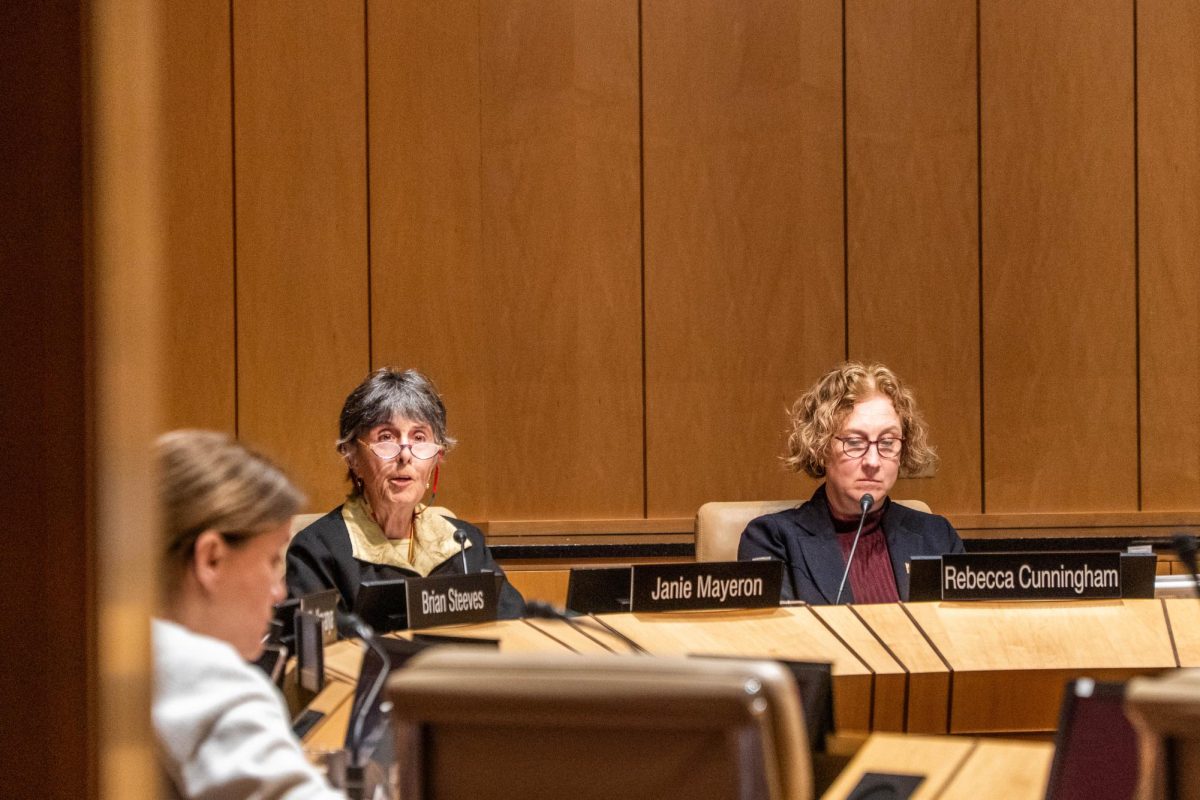
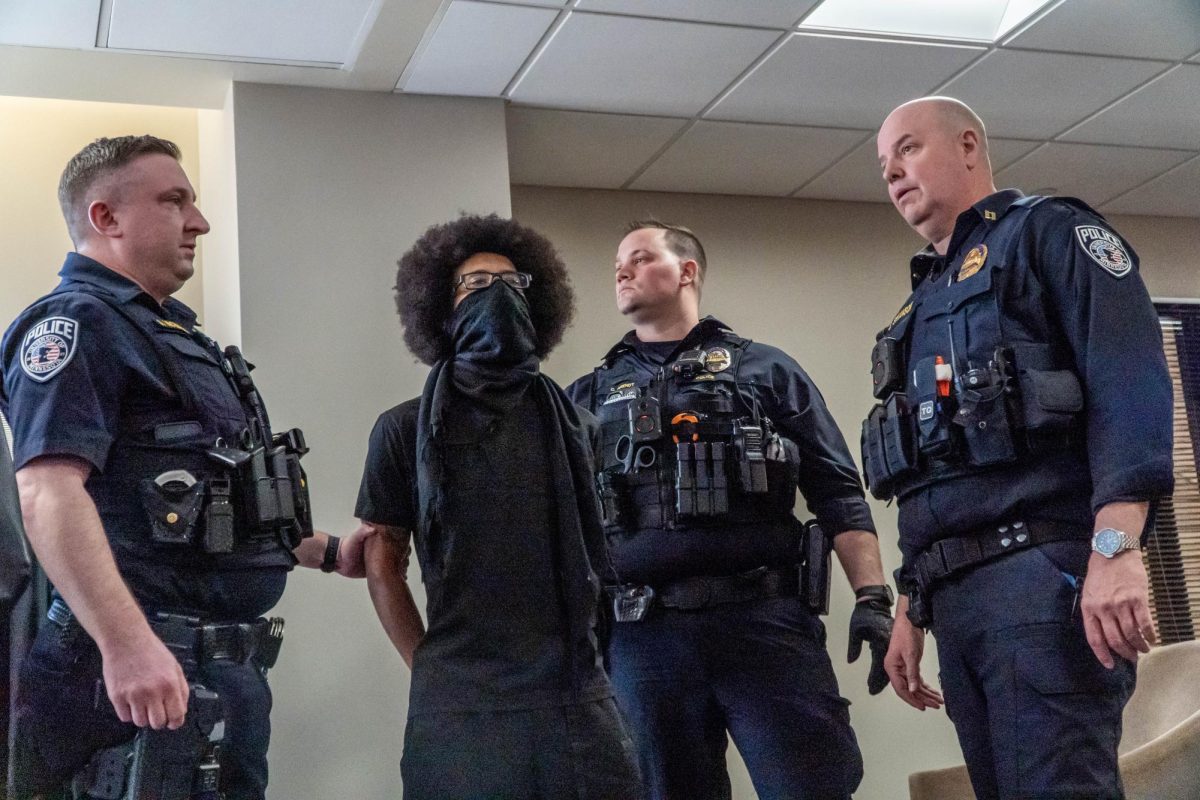

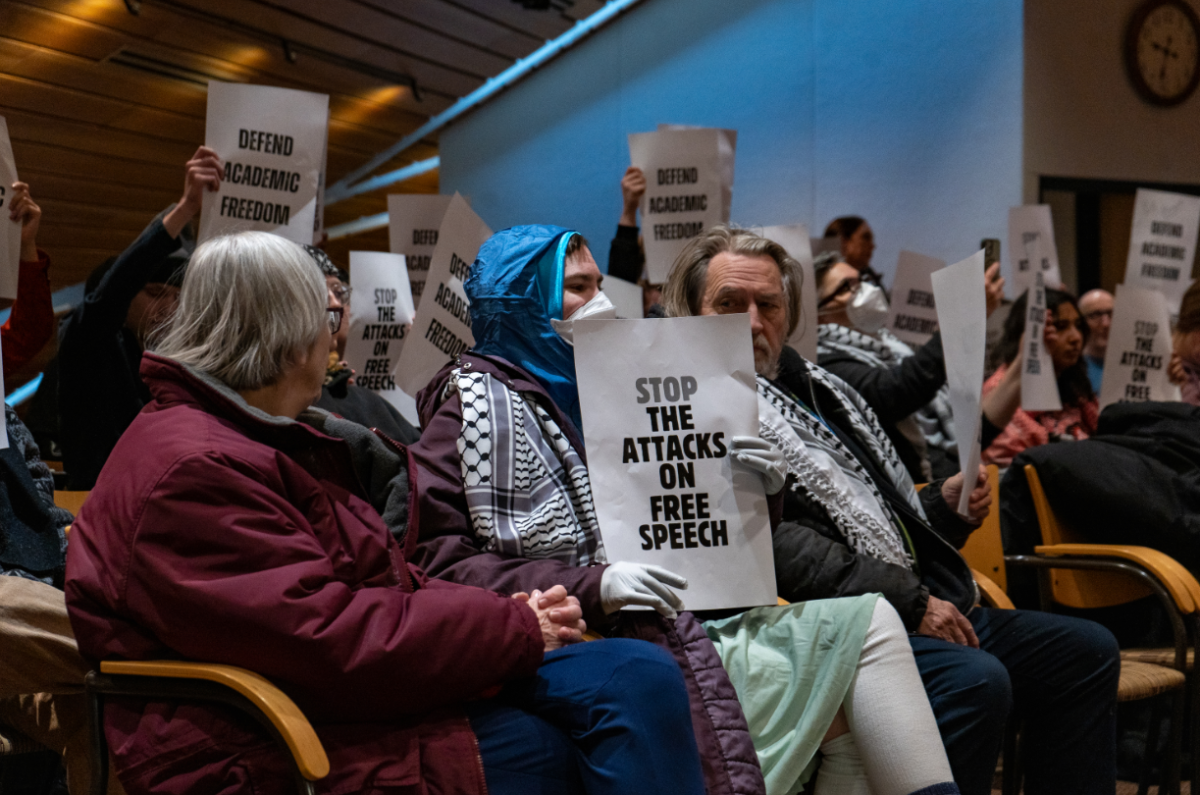
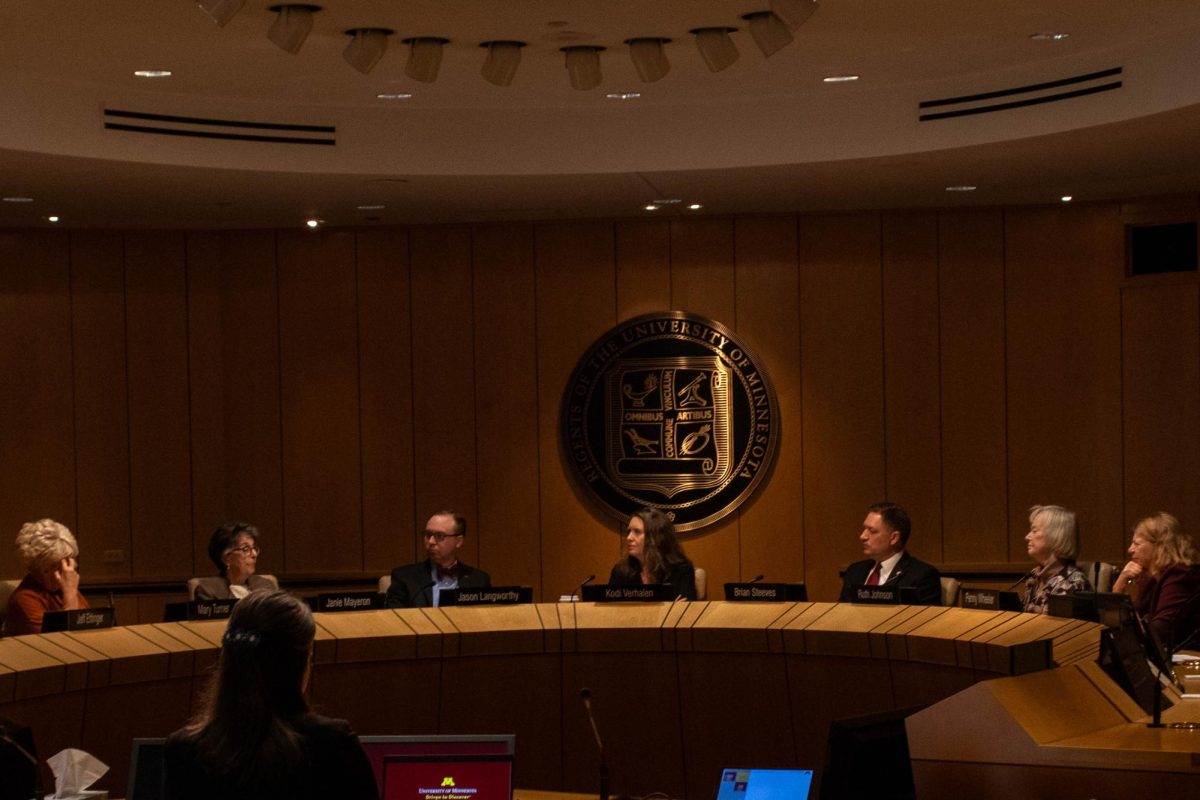
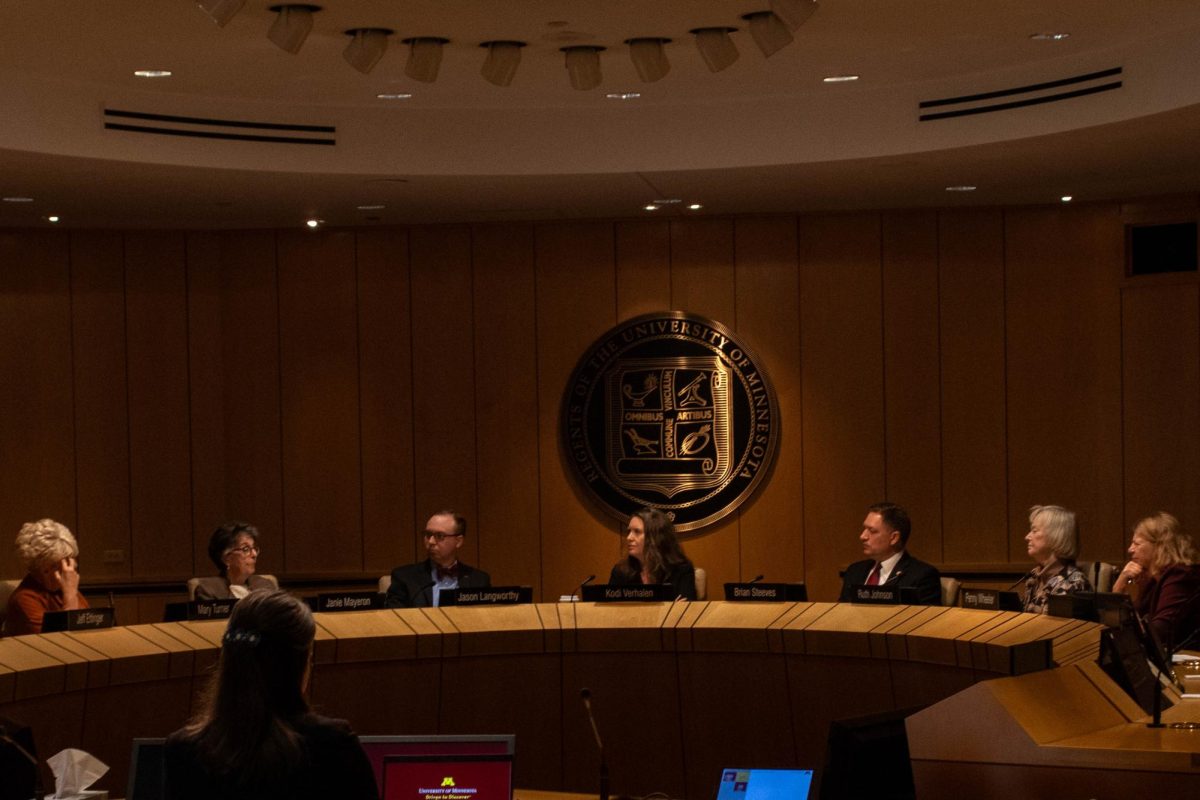

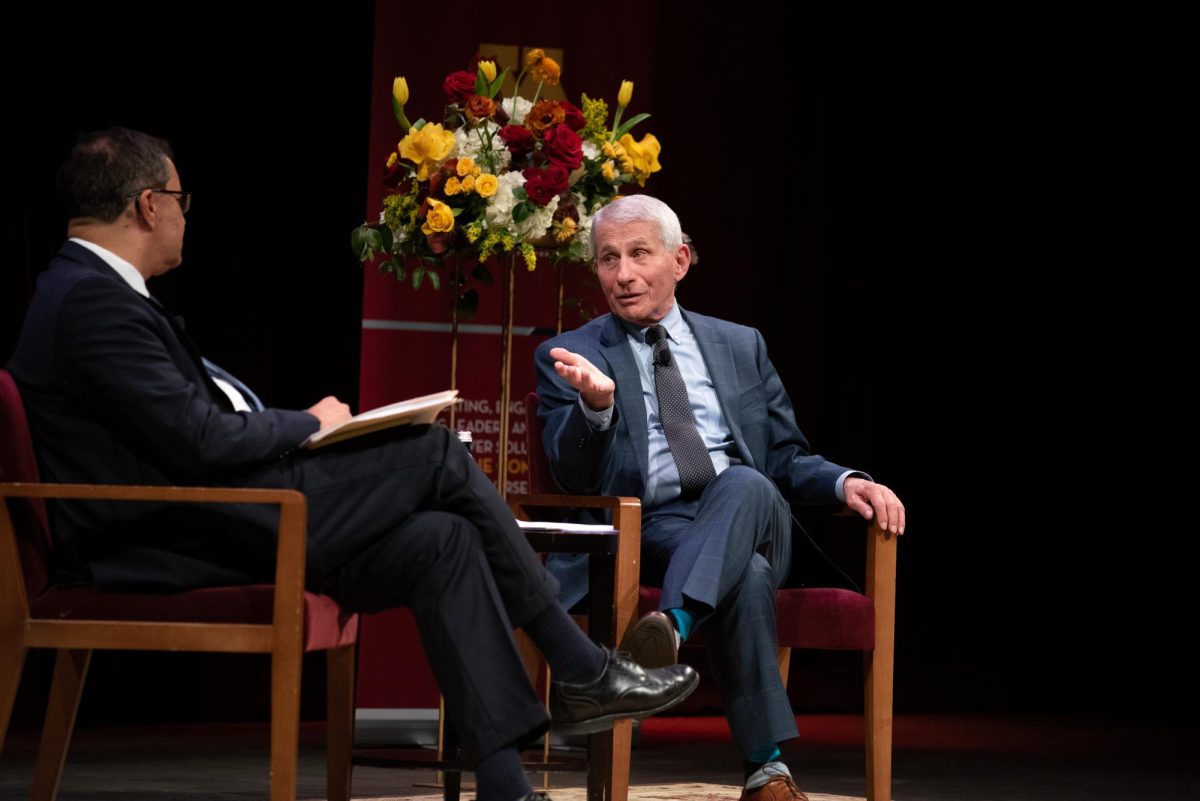




AnonCat
Apr 2, 2025 at 9:08 am
We need to elevate, not criminalize students!
Stop the genocide in Gaza!
We will never stop, we are not alone